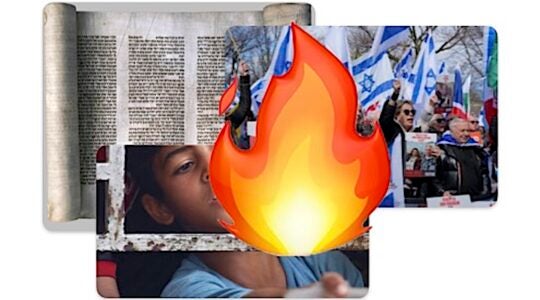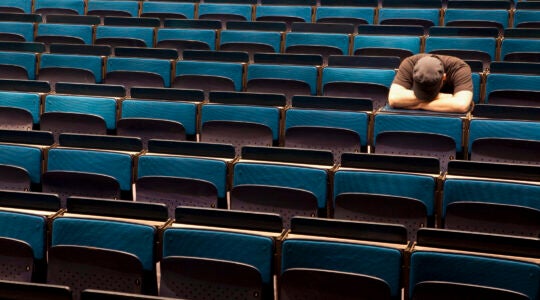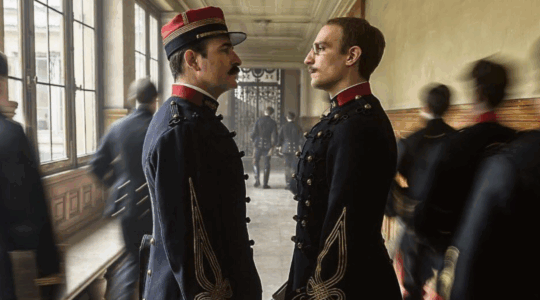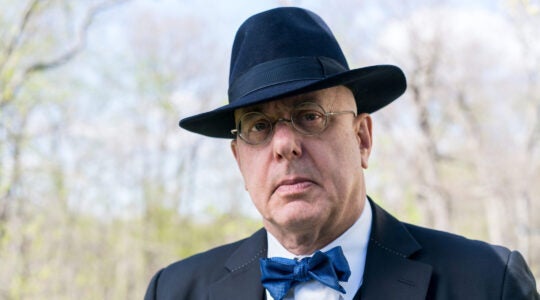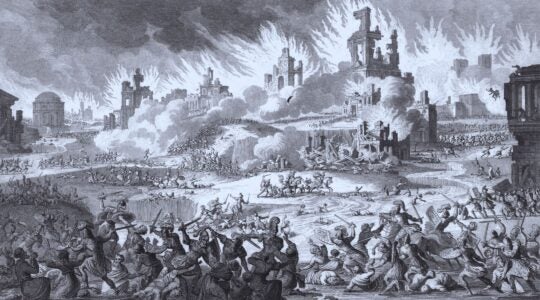When three Israeli children — one a 3-month-old infant — were stabbed to death in their beds on a recent Friday night in their home, along with their young parents, the world did not seem overly shocked or upset.
“Where is the outrage,” Presidents Conference leader Malcolm Hoenlein asked at a Manhattan memorial service last Thursday. “Where is the indignation?”
Is the relatively muted response due to the earthquake and tsunami in Japan that dominated the international news at the time? Or because we expect Palestinians to act in inhuman ways in expressing their hatred of Jews? Or maybe it was because the brutality element of the Israeli story was soon eclipsed by the political and diplomatic angle, with Jerusalem announcing that in response to the murders it would increase settlement building in the West Bank.
All of the above may be true, but I fear that a significant factor in the relative inattention to this shocking and heartbreaking story was that the Fogel family members who were killed were religious Israelis living in a small West Bank community. Had the victims been secular Jews living inside the Green Line, I believe the outrage would have been far greater.
The sad reality is that, as small as our people are in numbers, we are all-too guilty of thinking of certain segments as second-class Jews.
And in today’s political climate, when the West Bank settlements are seen by Washington as the central cause of the breakdown in Israeli-Palestinian negotiations, “the settlers” are viewed widely — including among many Jews here and in Israel — as operating outside the norm of Israeli society, an embarrassment to those in Tel Aviv cafes, a few miles away, prepared to displace tens of thousands of their countrymen for the prospect of peace with the Palestinians.
Once admired as brave pioneers embodying the spirit of the early Zionists in working the land, those Jews living beyond the Green Line are portrayed in the media as, for the most part, radical fundamentalists whose actions and very existence are jeopardizing the future of a Jewish democratic state living peacefully alongside a Palestinian state.
The facts are more complicated, though.
The Jewish communities in Judea and Samaria, more commonly referred to as the West Bank, have grown from a few thousand people to a few hundred thousand over the last four decades with the encouragement of successive governments in Jerusalem, both left and right, Labor and Likud.
The initial concept of creating “facts on the ground” for security reasons soon morphed into economics. The lure of large homes at reduced prices and away from crowded cities was a powerful incentive, and the majority of those living in the West Bank are secular Israelis or, increasingly, young haredi Jews motivated more by the need for space for their large families than the spirit of Herzl.
Yet it is the hard-core religious nationalists who are equated with the phrase “the settlers” in our minds, despite their relatively small numbers.
Of equal significance, Washington’s emphasis these last two years on the settlements as a primary obstacle to peace minimizes, if not obscures, the fact that the Palestinian leadership consistently has refused generous Israeli compromises without offering a counter plan.
It was left to Glenn Beck, the highly controversial Fox TV host, to stir up our emotions as no one else in the mainstream media has over the Fogel murders, reminding me that when Jews are killed because they are Jews, all of us should feel the heartache.
You can love Beck or hate him, consider him an ardent friend of Israel for speaking fervently of his support for Jerusalem, or a covert anti-Semite for suggesting the Jews killed Jesus or for making frequent inappropriate references the Holocaust and Nazis.
But his three separate tributes to the Fogels on his show last week seemed to come from the heart, each spoken in a tender, intimate tone.
The first night he described the night of bloodshed as one “Charles Manson couldn’t have imagined,” wondering “what kind of monster can butcher an infant?”
Perhaps more shocking than the murders themselves, Beck said, was the reaction of Gaza residents who celebrated the news, passing around candies in public, not unlike the reaction there to the 9/11 attacks.
On his next show, Beck praised Rabbi Yehuda Ben-Yishai, the Israeli grandfather of the three murdered children, who said that as a lifelong educator, he refused to speak out in anger or call for revenge. “This is a test of my faith,” the rabbi told an interviewer.
Two evenings later, Beck spoke in awe of 12-year-old Tamar Fogel, who found the bodies of her parents and siblings when she came home that fateful Friday night. The television host quoted the girl as saying she pledged to be strong and to be a mother to her two younger, surviving siblings.
“We want to remind you,” Beck told his audience, “that heroes come in all shapes, sizes and ages.”
He also wondered aloud why most of the media was ignoring the tragedy at Itamar.
It’s a good question. But I’m afraid I know the answer.
|
More from Gary Rosenblatt: |
The New York Jewish Week brings you the stories behind the headlines, keeping you connected to Jewish life in New York. Help sustain the reporting you trust by donating today.

